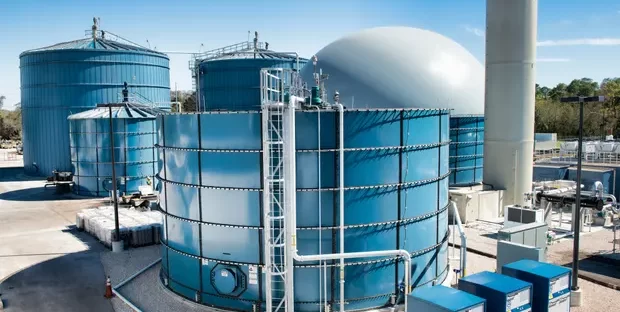Illegal dumping continues to present an ongoing problem throughout California, having direct and compounding physical, public health and economic implications.
Illegally disposing of waste in unauthorized places — along roadsides, in empty lots, in natural areas — not only diminishes the state’s beauty but also puts a financial strain on local governments and communities. This is why dumpster rental services are the best solution to stop illegal dumping. They offer convenient options for waste disposal, empowering residents and businesses to dispose of waste correctly, thus eliminating the possibility of illegal dumping.
What Illegal Dumping Looks Like in California
When it comes to illegal dumping, California has its own set of challenges. Alleyways and vacant lots in urban areas like Los Angeles, San Francisco and Fresno are littered with discarded furniture, construction debris and hazardous wastes. Likewise, agricultural lands and state parks become dumping grounds because they are better set up for the distraction that can take place.
The economic costs are staggering for illegal dumping. With municipalities like Fresno spending millions each year cleaning up waste from illegal dumping sites, the money could be used elsewhere on crucial public services. Plus, the environmental havoc is extreme, as pollutants from improperly disposed of materials leach into soil, water, and wildlife habitats. Vermin and pests drawn to those dump sites also threaten public health.
How Dumpster Rental Services Help with Illegal Dumping
To combat it, dumpster rental services provide convenient and viable waste disposal solutions. Here are a few ways they help in combating this issue:
Easy Ways to Dispose of Your Waste
It is often done as a response to expensive or inconvenient waste disposal. Dumpster rental companies offer a simple solution by delivering a container to wherever a customer needs. Whether for a home renovation, a construction project or a community cleanup, people and businesses can load up the junk and not have to haul it themselves to a landfill or recycling center.
Dumpster rental companies offer a range of sizes, from compact 10-yard dumpsters to larger 40-yard containers. Such flexibility allows people to keep the right tools at hand to dispose the waste in a responsible manner, lowering the temptation for illegal dumping.
Low-Cost, Easy-to-Access Alternatives
For some, the price of proper disposal is a hurdle. With affordable offers on these services, Dumpster rental can ensure responsible garbage disposal for a wider audience. lots of firms charge a flat price that includes delivery, as well as pickup and disposal costs, keeping clients free of needing to pay an extra charge.
Many municipalities like Fresno also work with dumpster rental companies as part of community cleanup events, providing inexpensive or free rentals to neighborhoods for cleanup efforts. These programs promote engagement and offer a less costly solution to illegal dumping.
Assist Community Cleanups
Illegal dumpsites are frequently cleaned by community groups or local governments, but the process can be costly and labor intensive. These initiatives are assisted by dumpster rental services that provide containers for collecting and taking away waste. Whether its friends coming to help filter through your belongings or cleanup crews, having a dumpster makes disposing of large or bulkier items easy for the volunteers and workers.
Additionally, these partnerships can help raise awareness about illegal dumping and encourage community involvement in keeping areas neat and safe.
How to cut down on waste from construction and renovation
Construction and renovation activities are among the biggest sources of illegal dumping, producing tons of construction debris. When faced with limited disposal options, contractors and homeowners may resort to dumping. Dumpster rentals solve this problem with a convenient disposal method for all the construction site debris. These services ensure that certain materials, such as concrete, drywall, and roofing shingles, are disposed of correctly and not just tossed onto the landfill.
Disposing of Hazardous Materials Safely
Illegal dumping of hazardous waste, including paint, chemicals and batteries, are serious environmental and health hazards. Dumpster rental businesses frequently share knowledge with their customers about what can be thrown into their boxes, guiding clients toward proper disposal techniques for items deemed forbidden. Some companies even team with hazardous waste disposal facilities to help dispose of them, or direct customers to those facilities.
Education on Why They Should Not Dump in the Future
Many dumpster rental services also focus on educating the community rather than just offering a service. In fact, they pass out educational pamphlets with information on the environmental and legal consequences of illegal dumping and the benefits of proper waste disposal. Such initiatives inform and inspire people and organizations to act sustainably.
Dumpsters rentals and their wider reach
By offering a means of waste disposal for usable items, dumpster rentals also relieve some of the pressure on California’s waste management systems, where dumping is illegal. Their efforts support recycling efforts and landfill diversion goals as outlined in the state’s aggressive environmental policies, so they encourage responsible disposal practices.
In this effort to combat the rampant illegal dumping in California in cities like Fresno and others, dumpster rental services are a viable and useful tool. They help resolve one root cause of illegal dumping: lack of affordable waste disposal options, by offering disposal to businesses conveniently, affordably and in a responsible way. Moreover, they have furthered their impact through their support of community cleanups, educational initiatives, and partnerships with local governments.
Hiring dumpster rental services like https://fresnodumpsterrental.org/ can be an efficient solution to help California combat the challenge of illegal dumping while promoting environmental responsibility. By creating a cultural awareness through your public service, community volunteering, and by providing access to such green offers, the state can guarantee clean and healthy environments for all its residents.… Read the rest









